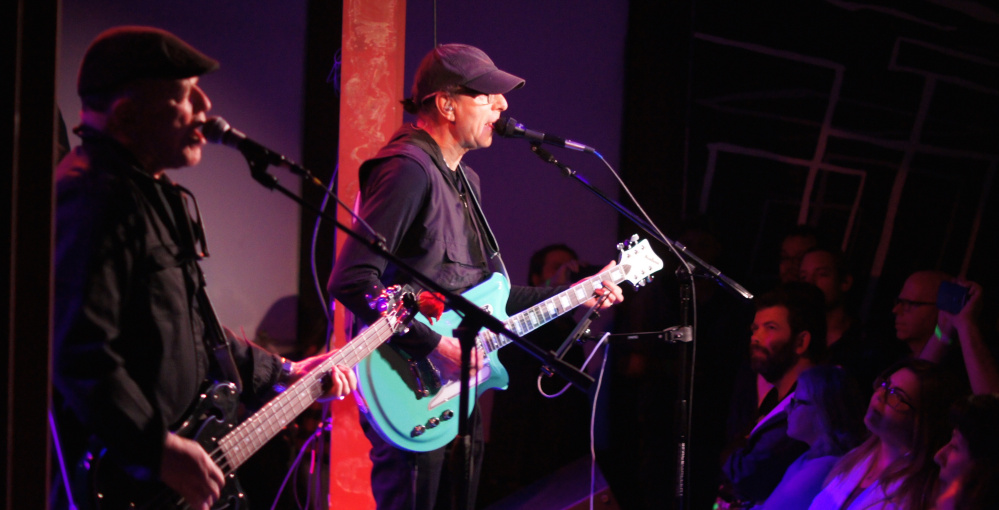The band Wire often gets categorized as punk, but that’s never been accurate. Their early songs are indeed known for their velocity, volume and brevity, and punk songs frequently strip pop music down to its essential parts before performing it in an accelerated fashion. Wire, on the other hand, has always broken pop music down to its essential parts before putting it back together in unusual ways – treating song structure like a Lego set.
On Friday, they brought that set to Portland for the first time in their storied career, and the venue was apt. Damien Gilley’s art installation at Space Gallery, featuring stark white lines on black walls, formed a nice visual complement to Wire’s often-minimalist constructs.
Wire is currently touring on the 40th anniversary of its landmark album, “Pink Flag,” but they are not a band that is prone to the kind of sentiment or nostalgia that inspires a deep dive into the past, nor are they concerned with the easy money such a tour would offer. Instead of fixating on their moment in the late 1970s, they’ve striven to remain curious and contemporary throughout their career, building upon past accomplishments, reacting to or against current trends, and playing with technology. Indeed, they are more active now than they were in the 1970s, having released five albums since 2011.
Either because that kind of output is difficult to keep up with, or because so many regard “Pink Flag” and its two follow-up albums as touchstones, the audience may have been more sentimental and nostalgic than the band. While the sold-out crowd was engaged and appreciative throughout, some drifted to the back as the show wore on, and the biggest applause of the night went to “Three Girl Rhumba,” the only song from “Pink Flag” that the band performed. It’s a gem of a song – most famous to some people for the 1990s band Elastica’s brilliant flip for their single “Connection” – and not only did it throw the crowd a pleaser, but it also seemed to fit frontman Colin Newman’s voice perfectly; he bit into the song like an apple.
The newer material, along with a few midcareer offerings, still provided a set rich with variety and fertile ideas. Although the absence of guitarist Bruce Gilbert was felt, the newer songs featured nice bits of texture, as vibrant guitar riffs swirled around the grinding rhythms as if Wire were borrowing a trick back from Elastica.
At times, a British folk influence could be plainly heard. Other times, such as in “Playing Harp for the Fishes” from their current album, “Silver/Lead,” looked at mortality with a grim, gallows humor reminiscent of Nick Cave. While these songs did not make up the kind of energetic show many were hoping for, fans no doubt understood that if Wire didn’t follow its instincts and do what it wanted, then they might not be fans to begin with.
Robert Ker is a freelance writer who lives in Portland.
Send questions/comments to the editors.



Success. Please wait for the page to reload. If the page does not reload within 5 seconds, please refresh the page.
Enter your email and password to access comments.
Hi, to comment on stories you must . This profile is in addition to your subscription and website login.
Already have a commenting profile? .
Invalid username/password.
Please check your email to confirm and complete your registration.
Only subscribers are eligible to post comments. Please subscribe or login first for digital access. Here’s why.
Use the form below to reset your password. When you've submitted your account email, we will send an email with a reset code.